Related Research Articles
Mohammad Hashem Cheshti, also known with surname Chishti and as Ustad Hashem, was a contemporary classical musician and composer born in Kharabat area of Kabul, Afghanistan, who died in 1994 in Germany under unclear circumstances.

Strike Force is an American action-adventure/police procedural television series that aired on ABC during the 1981–1982 television season, and was produced by Aaron Spelling Productions. The program starred Robert Stack as Capt. Frank Murphy, the leader of a specialized unit of detectives and police officers whose job is to stop violent criminals at any cost.

Zelda Rae Williams is an American actress and director. She is the daughter of late actor Robin Williams and film producer Marsha Garces Williams. As a voice actress, she is best known for voicing Kuvira in the Nickelodeon series The Legend of Korra.

The Goal of the Year is a competition for the best goal kicked in the Australian Football League (AFL) during that season. It is run in conjunction with the Mark of the Year competition and is currently sponsored by Rebel Sport. The winner is awarded the Phil Manassa Medal. The concept of awards for the goal and mark of the year is thought to have been initiated in 1970, as an unofficial award given by the media to Alex Jesaulenko following his famous mark in that season's grand final. The official awards were first given in 2001. Eddie Betts has been awarded Goal of the Year on an unparalleled four occasions, the most of any player, and is the only player to win the award in consecutive seasons.
KHTP, is a commercial radio station licensed to Tacoma, Washington, and serving the Seattle metropolitan area. It is owned and operated by Audacy, Inc., and it airs a classic hip-hop radio format. The studios and offices are on Fifth Avenue in Downtown Seattle.
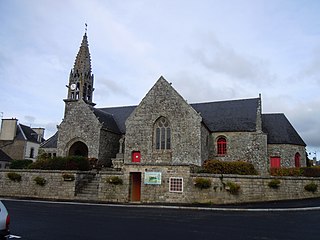
Langoëlan is a commune in the Morbihan department of Brittany in north-western France. Inhabitants of Langoëlan are called in French Langoëlanais.
John Lloyd "J.T." Taylor is an American musician. Not to be confused with the bassist of Duran Duran who shares the same name, he is best known as the lead guitarist and musical director for the pop rock band the Jonas Brothers, from 2005 to 2013. He is also in the band formerly known as Bulldozer, now known as Ocean Grove, consisting of himself and the rest of the Jonas Brothers' band: Greg Garbowsky, Ryan Liestman (formerly), and Jack Lawless.

Our Lady of Warraq is believed, by some, to be a mass apparition of the Virgin Mary that occurred at the Coptic Orthodox Virgin Mary and Archangel Michael church, in Warraq al-Hadar, Giza, Egypt, in the early hours of Friday 11 December 2009.

Reginald Alberto Agrati Stoneham was an Australian composer and publisher of mostly topical songs, and a musical comedy F.F.F. He was perhaps Australia's leading exponent of jazz and ragtime piano styles in the first decades of the 20th century as both composer and performer. He was also a popular accompanist and recording artist.
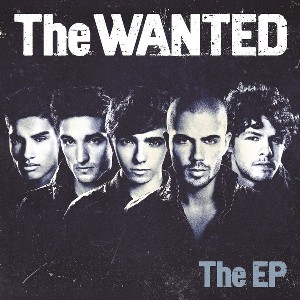
The Wanted is the first extended play by British-Irish boy band The Wanted. It was released on 24 April 2012 as the band's debut release in Canada and United States via Mercury Records. The album comprises material from The Wanted's two studio albums: The Wanted (2010) and Battleground (2011), as well as two new songs: "Chasing the Sun" and "Satellite".

The Solution is the third collaborative studio album by American rapper Buckshot and record producer 9th Wonder. It was released on November 13, 2012 through Jamla Records/Duck Down Music. Production was entirely handled by 9th Wonder, who also served as executive producer. It features guest appearances from Dyme-A-Duzin and Rapsody. The album debuted at number 196 on the Billboard 200 chart, with first-week sales of 2,300 copies in the United States.

Peter Hadfield is a British freelance journalist, author, and geologist, who runs the YouTube channel Potholer54, which has over 200,000 subscribers. He has previously lived in Japan, and now lives in Australia.
Cecimonster vs Donka is a Peruvian rock band formed on May 1, 2010, by Sergio Saba and Sebastian Kouri in Lima, Peru. A few months later they were joined by Elías Mujica and Patrick Mitchell and recorded one demo. As of 2024 they have 5 studios albums: Solara in 2011, which their song Nieve Nieve won best Rock act in the Country. Adentro Afuera In 2012, from which they were nominated for the best rock act in the country by El Comercio, Empty Beaches in 2015 the band's 3rd album titled released by Anti-Rudo records. A Big House By The Lake In 2019 with Mario Acuna and Danny Wilson now on the band. In 2024 the band released their fifth album titled "Delilah" with their new bassist Richard Gutierrez from El Hombre Misterioso
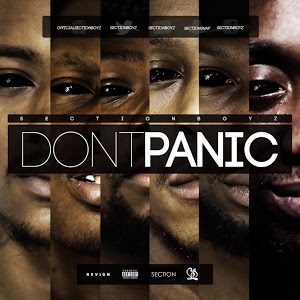
Don't Panic is the independently-released second mixtape by British hip hop collective Section Boyz. The mixtape debuted at #21 on the iTunes chart on pre-orders alone, and reached #3 on the day of the release. In the mixtape's first week it reached number 37 in the UK Albums Chart, later peaking at number 36.

Raven & Kreyn is a French electronic music duo of disc jockeys and producers. Consisting of Alexandre Abescat and Tom Mokrane, Raven & Kreyn started in 2013. The duo signed on notable labels such as Spinnin' Records, Armada Music, Universal Music, Warner Music, Atlantic Records, Big Beat Records, Ministry Of Sound Australia, Hexagon and NoCopyrightSounds.
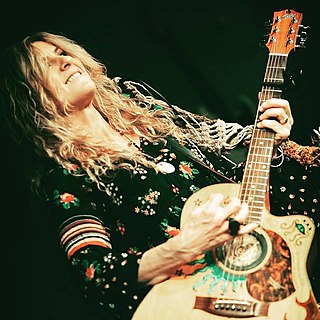
Jane Kitto is an Australian songwriter, singer and musician who is professionally known by the artist name Kitto. Her music mainly consists of alternative rock and has recorded 7 albums, 3 EP's and several compilations. She is also co-writer and vocalist together with husband Pna Andersson in their psychedelic classic rock band Perfect Blue Sky. Both reside in Cornwall, United Kingdom. Kitto began her music career when signed to Mushroom Records in 1991 and has since travelled throughout over 35 countries performing at various festivals in Europe alongside remote locations such as Svalbard North Pole, Tahiti, Robben Island and was the first Australian artist to perform live in ex-Soviet country of Belarus. Kitto has appeared on various compilations and singles, as well as live albums and soundtracks and featured in the Australian edition of 'Who's Who of Rock & roll' 1993. Alongside her own work, Kitto has recorded, written and performed with established songwriters such as Vanda & Young, Andrew McMillan and Billy Thorpe and featured as a vocalist with Big Brother and the Holding Company, She tours both as a solo performer and together with Perfect Blue Sky.
East Tennessee Blues is an American old-time fiddle song, which dates back to the early 20th century.
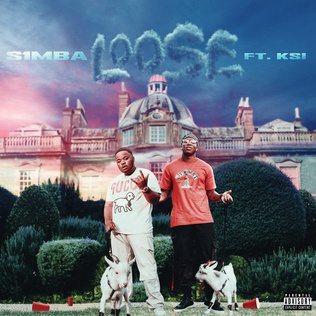
"Loose" is a song by British singer S1mba from his debut studio album, Good Time Long Time (2021). The song features a guest appearance from British YouTuber and rapper KSI. It was produced by RELYT and Grades. The song was released for digital download and streaming by Parlophone Records on 11 September 2020 as the second single from the album. "Loose" is a British hip hop and afroswing track.
The Choice 2020: Trump vs. Biden is a 2020 television documentary film about the Republican and Democratic Party nominees for the 2020 United States presidential election: President Donald Trump and former Vice President Joe Biden respectively. Produced by the investigative journalism program Frontline for PBS, it aims to better inform American voters in their choice by recounting the two major nominees' character and past deeds. Co-produced and directed by Michael Kirk, the film premiered on PBS and simultaneously made available to stream on the broadcaster's website and YouTube channel on September 22, 2020. Biden would ultimately be elected President of the United States that November, setting a record for the most votes ever received by a presidential candidate. He also became the first man to defeat an incumbent president in 28 years and received the highest percentage of the popular vote over an incumbent president since Franklin Roosevelt in 1932.
References
- 1 2 3 "Rock n roll to rural bliss". Australia: ABC News. 31 May 2011.
- 1 2 3 Manning, Fiona (17 September 1980). "Judy Stone's new single: 'The year's best kept secret'". The Australian Women's Weekly. Vol. 48, no. 16. p. 32 (Free: Your TV Magazine). Retrieved 26 July 2016– via National Library of Australia.
- 1 2 Ward, Kirsten (20 September 1961). "Three boys take to the sawdust trail". The Australian Women's Weekly. Vol. 29, no. 16. p. 11 (Teenagers' Weekly). Retrieved 26 July 2016– via National Library of Australia.
- ↑ "MUSIC New release a festival of Australian memories". The Canberra Times. 29 May 1988.
- 1 2 "Cohuna Rock n Roll Hall of Fame" – via Facebook.
- ↑ "History of Rock'n'Roll in Western Australia". optusnet.com.au. Retrieved 11 April 2023.
- ↑ "The De Kroo Brothers". 30 October 2013. Archived from the original on 30 October 2013.
- ↑ "Succes voorspeld voor "De Kroo Brothers"". Dutch Australian Weekly. 6 September 1963.
- ↑ "TV success for brothers". Australian Women's Weekly. 2 November 1960. p. 11 – via Trove.
- ↑ "Talent quest finals at Canberra Theatre". Canberra Times. 9 September 1965. p. 23 – via Trove.
- 1 2 5GTRFMDJ (18 January 2011). "De Kroo Brothers – Please Help Me I'm Fallin' 1963.wmv" – via YouTube.
{{cite web}}: CS1 maint: numeric names: authors list (link) - ↑ "Medicine and melody make good combo". Australian Women's Weekly. 20 June 1962.
- 1 2 3 Kimbo (7 September 2013). "HISTORY OF AUSTRALIAN MUSIC FROM 1960 UNTIL 2010: THE DE KROO BROTHERS".
- ↑ Gavin Ryan, Sydney Pop Music Charts 1953-2003, Brisbane Chart Book 1956-2002, and Perth Music Charts 1958-2006, Moonlight Publishing, 2003, 2004, and 2007, No ISBNs
- ↑ Repertoire search at American Society of Composers, Authors and Publishers (ASCAP): Work ID 310045439
- ↑ US Copyright Office, Registration EU0000696657, 1961-11-24 ("Scarlet" is spelt here with one "t")
- ↑ "Knit a de Kroo Brothers Jacket". The Australian Women's Weekly. 28 July 1965.
- ↑ "2DU – Past Announcers". 2du.com.au.
- ↑ Stomp The Tumbarumba! (16 January 2012). "The De Kroo Brothers – Oh! Susie Darlin' – 1964 – Festival FK-847" – via YouTube.
- ↑ "MILESAGO – Industry – Record Labels – Festival Records". milesago.com.
- ↑ Stomp The Tumbarumba! (12 December 2011). "The De Kroo Brothers – The Road To Gundagai – 1962 – Festival FK-201" – via YouTube.
- 1 2 sallie6 (22 October 2016). "♫ De Kroo Brothers ♥ Michael Row The Boat Ashore ♫" – via YouTube.
{{cite web}}: CS1 maint: numeric names: authors list (link) - ↑ mainspring100 (6 November 2011). "De Kroo Brothers – On the job too long" – via YouTube.
{{cite web}}: CS1 maint: numeric names: authors list (link) - ↑ Stomp The Tumbarumba! (16 January 2012). "The De Kroo Brothers – Head Over Heels – 1960 – Columbia DO-4126" – via YouTube.
- ↑ Stomp The Tumbarumba! (12 December 2011). "The De Kroo Brothers – 'Cause I Like It – 1960 – Columbia DO-4127" – via YouTube.
- ↑ "The DeKroo Brothers – Scarlet – The Festival File Volume Five". Discogs. May 1988.
- ↑ "The DeKroo Brothers – Collectors Album". Discogs. 2 December 1987.
- ↑ sallie6 (13 March 2015). "De Kroo Brothers Be Bop A Lula" – via YouTube.
{{cite web}}: CS1 maint: numeric names: authors list (link) - ↑ sallie6 (1 April 2015). "♫ De Kroo Brothers ♥ Loveland ♫" – via YouTube.
{{cite web}}: CS1 maint: numeric names: authors list (link) - ↑ sallie6 (13 May 2015). "♫ De Kroo Brothers ♥ In The Summertime ♫" – via YouTube.
{{cite web}}: CS1 maint: numeric names: authors list (link) - ↑ sallie6 (11 November 2016). "♫ De Kroo Brothers ♥ Some Sweet Day ♫" – via YouTube.
{{cite web}}: CS1 maint: numeric names: authors list (link) - ↑ sallie6 (8 March 2015). "♫ De Kroo Brothers ♥ Love My Life Away ♫" – via YouTube.
{{cite web}}: CS1 maint: numeric names: authors list (link) - ↑ sallie6 (3 March 2015). "♫ De Kroo Bothers ♥ Her Name Is Scarlet ♫" – via YouTube.
{{cite web}}: CS1 maint: numeric names: authors list (link) - ↑ sallie6 (25 March 2015). "♫ De Kroo Brothers ♥ All Right, Be That Way ♫" – via YouTube.
{{cite web}}: CS1 maint: numeric names: authors list (link) - ↑ sallie6 (3 April 2015). "♫ Poppa Joes ♥ De Kroo Bros Col Joye Joye Boys Judy Stone Laurel Lea ♫" – via YouTube.
{{cite web}}: CS1 maint: numeric names: authors list (link) - ↑ Some Year in Time (18 September 2018). "Midnight Mary by The De Kroo Brothers (1963)" – via YouTube.
- ↑ mainspring100 (6 November 2011). "De Kroo Brothers – It never came true 1962" – via YouTube.
{{cite web}}: CS1 maint: numeric names: authors list (link) - ↑ theflipsidedkid (1 November 2012). "The DeKroo Brothers & Silver Threads and Golden Needles" – via YouTube.
- ↑ sallie6 (27 July 2011). "♫ De Kroo Brothers ♥ Lucille – Myer Music Bowl ♫" – via YouTube.
{{cite web}}: CS1 maint: numeric names: authors list (link) - ↑ sallie6 (17 November 2016). "♫ De Kroo Brothers ♥ Ballad of Jed Clampett ♫" – via YouTube.
{{cite web}}: CS1 maint: numeric names: authors list (link) - ↑ sallie6 (22 October 2016). "♫ De Kroo Brothers & Judy Stone ♥ Blue Moon of Kentucky ♫" – via YouTube.
{{cite web}}: CS1 maint: numeric names: authors list (link) - ↑ sallie6 (17 November 2016). "♫ De Kroo Brothers ♥ You're The Reason, Please Help Me I'm Falling, Blue Blue Day, Oh Lonesome Me ♫" – via YouTube.
{{cite web}}: CS1 maint: numeric names: authors list (link) - ↑ sallie6 (30 November 2017). "♫ The De Kroo Brothers ♥ Milk Train ♫" – via YouTube.
{{cite web}}: CS1 maint: numeric names: authors list (link) - ↑ 5GTRFMDJ (30 December 2010). "De Kroo Brothers – Keep A Walking 1961.wmv" – via YouTube.
{{cite web}}: CS1 maint: numeric names: authors list (link) - ↑ "Pop Stars Wed". The Canberra Times . Vol. 40, no. 11, 402. 26 February 1966. p. 3. Retrieved 26 July 2016– via National Library of Australia.